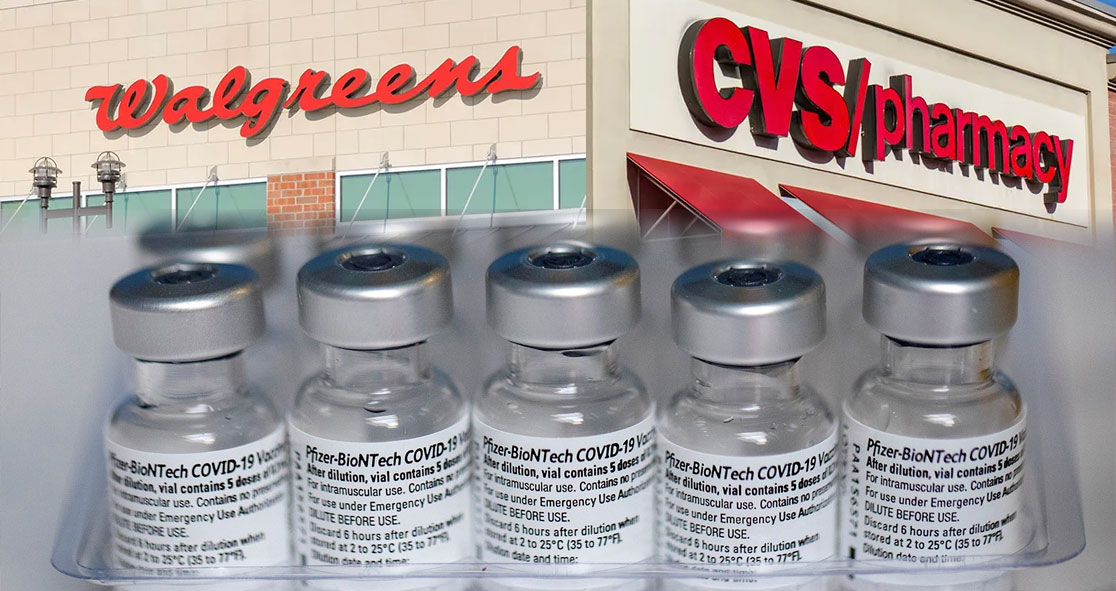Recently, Kaiser Health News (KHN) reported that CVS and Walgreens are accounting for the majority of wasted COVID-19 vaccines.
Retail pharmacies are a crucial part of the nation’s distribution of COVID-19 vaccines, but KHN found that the majority of wasted vaccines come from CVS and Walgreens.
These findings are based on CDC data, revealing that these two pharmacy chains are responsible for a vast majority of COVID vaccines than all government agencies combined.
NPR’s Sacha Pfeiffer has recently spoken with investigative reporter Joshua Eaton of KHN about these findings. Eaton covered the story with Rachana Pradhan, who is also a KHN reporter.
Eaton told Pfeiffer, “The data we got from the CDC showed almost 200,000 vaccine doses wasted through March 29. And then we were able to get some more data from states that didn’t report to the CDC. And that showed, combined with the CDC data, just over 200,000 doses wasted.”
Upon asking how problematic did people tell you this waste was, Eaton said, “We really have a limited view on this. We were able to get some data from Texas, but the CDC data didn’t include Texas. So there’s one problem, which is the waste, and then there’s another problem, which is how limited our view is of what’s been wasted and what’s being used and what’s not being used and where.”
“Incidents where there were hundreds or sometimes even more than a thousand doses wasted at one time, it was almost exclusively either a freezer malfunction, or a worker left them out for too long at room temperature, and so they spoiled,” Eaton added. “So it was usually – it had to do with the storage requirements.”
Pfeiffer asked Eaton about the reaction of CVS and Walgreens to these findings. He said, “So CVS told us that despite the challenges, they worked very hard to eliminate waste. And they had approximately – they said one dose per onsite vaccination clinic that was wasted. And Walgreens said its wastage amounted to less than half a percent of vaccines they administered through March 29.” You can go through the detailed interview between Pfeiffer and Eaton on NPR.























